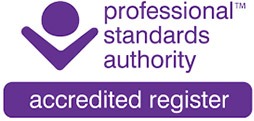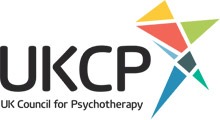Raising Concerns and Making a Complaint
Introduction
The UK Association for Humanistic Psychology Practitioners (UKAHPP) aims to ensure that concerns and complaints are appropriately addressed and as efficiently as possible.
If anyone has concerns about the practice of a UKAHPP practitioner (registrant) or the service UKAHPP has provided as an organisation, you are advised to discuss your concerns with the person(s) concerned before initiating formal proceedings. However, the UKAHPP recognises that this is not always possible or appropriate and that the submission of a formal complaint is necessary.
The following information will help you decide how to address your concerns.
Raising Concern
The UKAHPP would like to hear about any concerns you may have as soon as possible. You can contact the UKAHPP Administrator who will help you consider your options or direct you to the General Secretary how is responsible for receiving complaints:
By post to:
The Administrator
UKAHPP
Box BCM AHPP
27 Old Gloucester Street
LONDON
WC1N 3XX
By e-mail: [email protected]
By telephone: 0843 2895907
Making a Complaint
If you wish to make a formal complaint, please choose one of the following three options:
- If you are making a complaint about the practice of a UKAHPP registrant
- If you are making a complaint about the practice of a UKAHPP registrant who is also registered with the UK Council for Psychotherapy (UKCP)
- If you are making a complaint about the UKAHPP as an organisation, the conduct of an officer or representative of the UKAHPP acting in an official capacity.
- Complaints about a Member of UKAHPP
Complaints about the practice of a UKAHPP registrant will be handled by the UKAHPP Ethics Committee under the UKAHPP Complaints Procedure.
You can make a complaint by writing to the UKAHPP General Secretary using the following form. COMPLAINT DISCLOSURE FORM
Please provide as much information as you can, including:
- The Full Name of the UKAHPP registrant you are making a complaint about
- Your name, contact details and nature of your relationship with the registrant e.g. Client, Trainee, Supervisee
- Date(s) and Details of the incident(s) you are making a complaint about
The General Secretary will contact you within 28 days of receipt of your complaint and to let you know it will be progressed. A copy of the UKAHPP Complaints Procedure will be provided.
If required the UKAHPP Code of Practice and Ethical Principles, UKAHPP Complaints Procedure and WHISTLEBLOWER POLICY can be accessed on the UKAHPP website or obtained on request from the UKAHPP Administrator.
By post to:
The General Secretary
UKAHPP
Box BCM AHPP
27 Old Gloucester Street
LONDON
WC1N 3XX
By e-mail: [email protected]
- Complaints about the practice of UKAHPP member who is registered with the UK Council for Psychotherapy (UKCP)
The UKAHPP is an Organisational Member of the UKCP and as such UKAHPP Accredited Psychotherapists and Psychotherapeutic Counsellors may be included on the UKCP Register. Complaints about the practice of a UKAHPP registrant, who is also registered with the UKCP, will be progressed through the UKCP Central Complaints Procedure (CCP). You can find out if a member is on the UKCP Register by contacting UKCP or by accessing on line the UKCP Register.
You can raise a complaint directly with the UKCP or UKAHPP can submit it on your behalf.
By post to:
Complaints and Conduct Team
UKCP
America House
2 America Square
LONDON
EC3N 2LU
By e-mail: [email protected]
By telephone: 020 7014 9955
Website: http://www.ukcp.org.uk/complaints
- Concerns and Complaints about UKAHPP as an Organisation, including the conduct of its Officers and Representatives acting in an official capacity
The UKAHPP is committed to providing a professional service of a high standard and recognise that from time to time the organisation, its officers or representatives may fall short of these standards and you may be disappointed about some aspect of the service provided or the way you have been treated.
The UKAHPP Board of Directors welcomes feedback about the services it provides and aims to resolve difficulties as quickly as possible. If you have any concerns about UKAHPP as an organisation, the services provided or the conduct of its officers and representatives, please contact the UKAHPP General Secretary or if this is not appropriate you may submit a formal Organisational Complaint in writing to the UKAHPP Board of Directors, stating:
- Your name and contact details
- The nature of the complaint, date(s) and full details of what happened
- The name of UKAHPP officer(s) involved.
By post to:
The Board of Directors
UKAHPP
Box BCM AHPP
27 Old Gloucester Street
LONDON
WC1N 3XX
By e-mail: [email protected]
Your complaint will be acknowledged within 28 days of receipt.
By using the following link you can access the UKAHPP Organisational Complaints:
UKAHPP Organisational Complaints Procedure
June 2018

